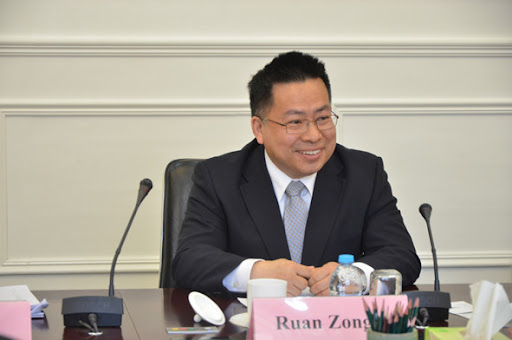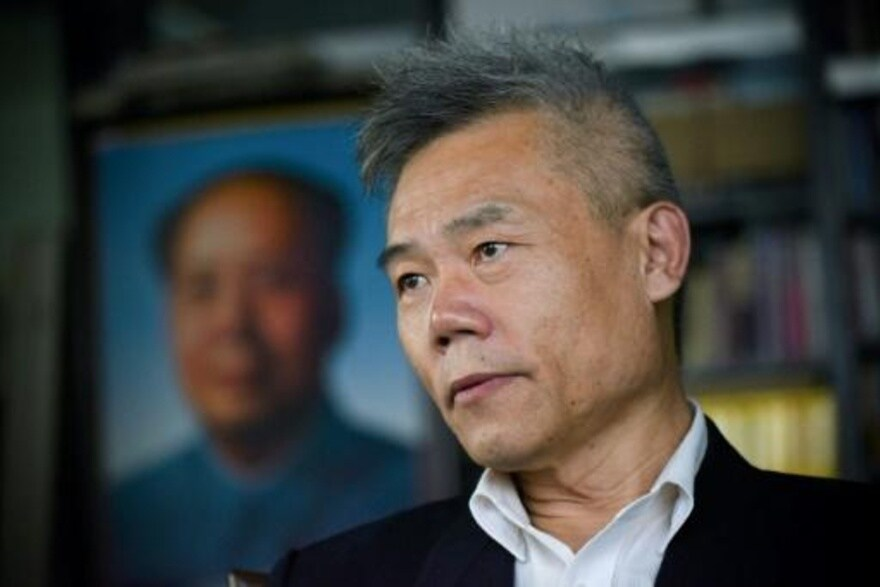
"What is the path to national security with Chinese characteristics? The easiest approach is to define what it 'ain't'... it's certainly not the 'path to national security with American characteristics'...[which is] totalistic, offensive and egotistical" - Head of CICIR Yuan Peng 

The China Institutes of Contemporary International Relations (CICIR) is a think tank that reports to the Ministry of State Security and is overseen by the CCP Central Committee. Its president, Yuan Peng, was the main speaker at a PBSC meeting on national security in December 2020 

"More importantly", Yuan begins, "the US security objective is to maintain global hegemony, whereas China's objective is to achieve national rejuvenation."
Interestingly, Yuan emphasizes that the Chinese path to national security should be distinct from that of Russia as well.
Interestingly, Yuan emphasizes that the Chinese path to national security should be distinct from that of Russia as well.
"So", Yuan asks, "what *is* the road to national security with Chinese characteristics?"
He lists four characteristics:
He lists four characteristics:
1) What China pursues is the 'holy trinity' of security to the people, political security, and national interests, i.e., where the Party's interests and national interests are aligned, and the people's interests and the Party's interests are aligned...
"In this sense, the "Two Protects"* may have greater strategic significance for national security than at any other time in history, and I'm not saying this for political posturing."
*see screengrab and read @HollySnapeWang's essay on @ChinaLawTransl8 at chinalawtranslate.com/en/new-regulat…
*see screengrab and read @HollySnapeWang's essay on @ChinaLawTransl8 at chinalawtranslate.com/en/new-regulat…

2) "The path of peaceful development - The 18th Party Congress issued three conditions... in what resolved the theoretical stumbling blocks that had previously obstructed the path to peaceful development:
"First, it proposed that the success of the path to peaceful development will be determined by whether China can seize global opportunities and whether the world can seize the opportunities in Chinese... and that the two would intersect.
"Second, our insistence on the peaceful development path cannot be at the expense of sovereignty and territorial integrity... Finally, if China chooses the path of peaceful development, other countries must follow suit.
"3) the integration of development and security - From the time the Chinese nation stood up [under Mao], we paid more attention to security issues; when we got rich [thanks to Deng's reform and opening], we paid more attention to development issues;
"and now, as we have reached the stage of becoming strong [under Xi], we must coordinate the two major issues of development and security. This is the guiding spirit behind the path to national security with Chinese characteristics.
"4) Independence, sovereignty, and a community of shared future for mankind must all go hand in hand - In our pursuit of independence & sovereignty, we must also work to establish a new type of major-power relations and a community of shared future for mankind*
* @RollandNadege👇

* @RollandNadege👇


"This is especially true given that America has clearly embarked on its egotistical path of ensuring its own national security, while other countries prefer to stand on the sidelines, unwilling to confront or deal with chaotic events such as those in Afghanistan."
Ending on a quote by Mencius, Yuan concludes: "穷则独善其身,达则兼济天下* [any suggestions for an English equivalent?] This is where China's path to national security diverges from that of other major powers."
/End
aisixiang.com/data/129209.ht…
*Marked section trans. by Robert Eno👇
/End
aisixiang.com/data/129209.ht…
*Marked section trans. by Robert Eno👇

• • •
Missing some Tweet in this thread? You can try to
force a refresh












